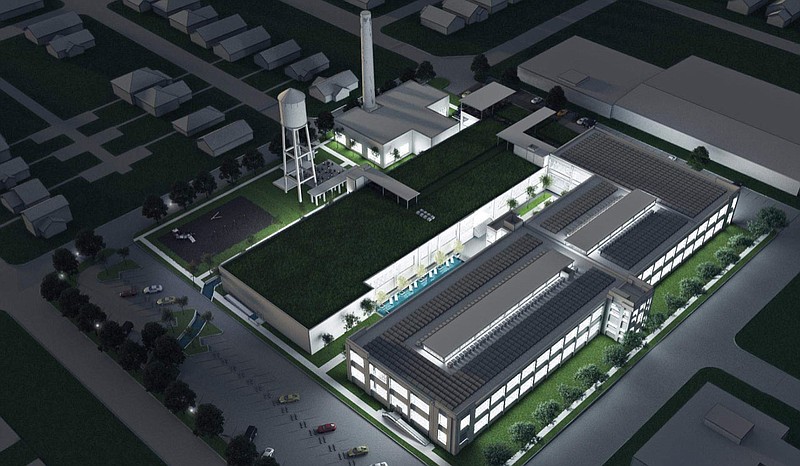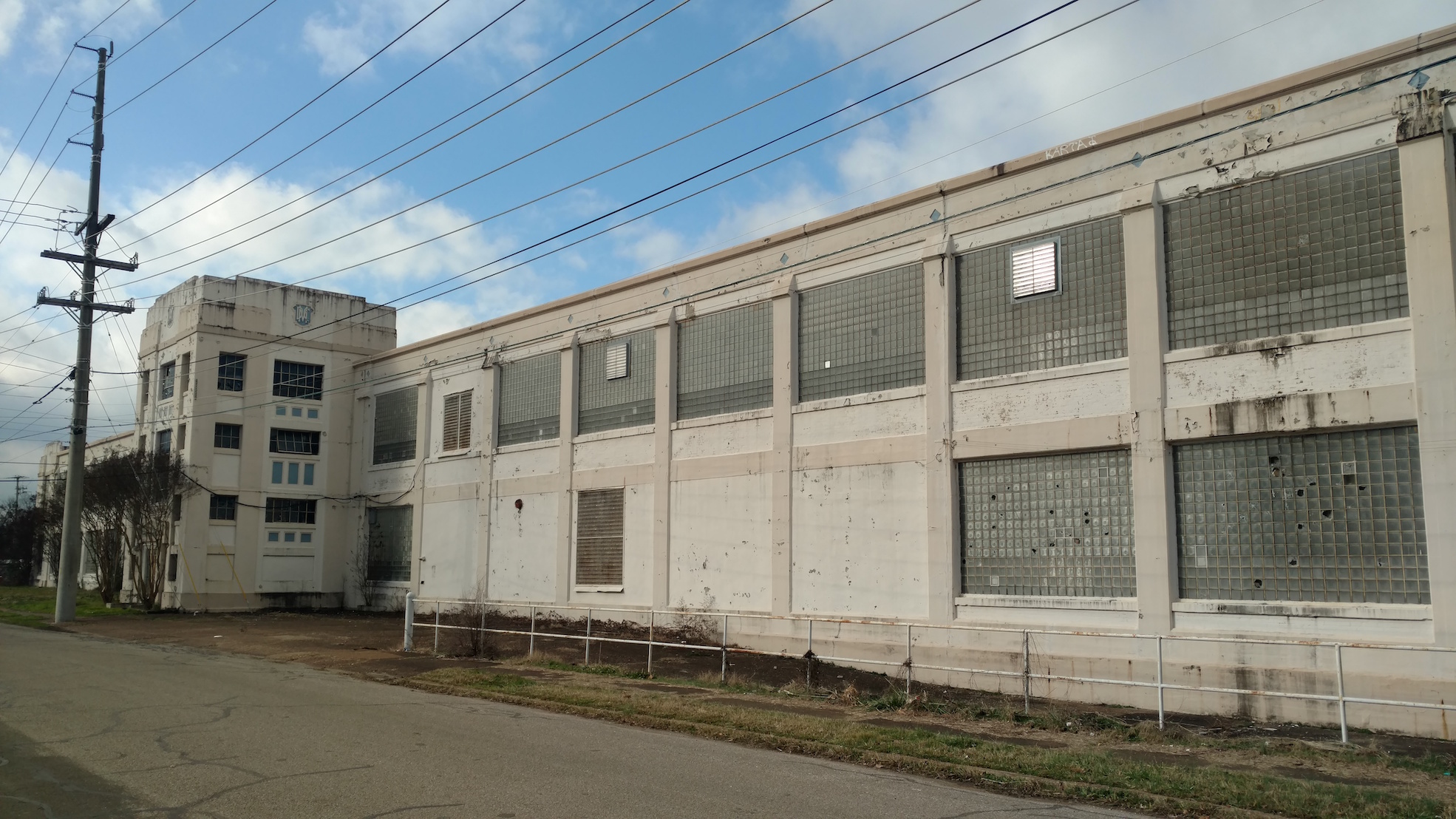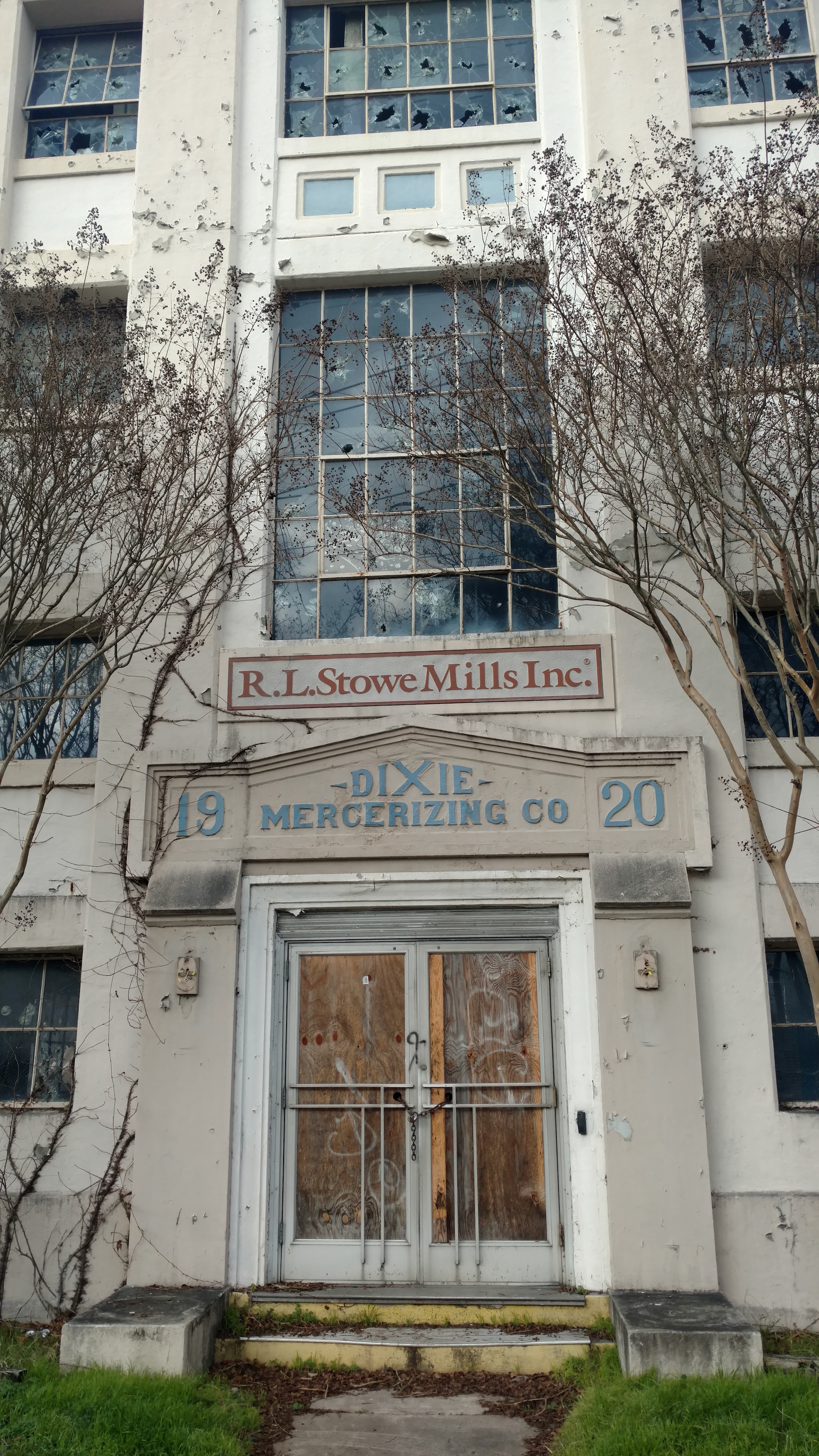Up to 90 new apartments are planned near downtown as a Chattanooga development team aims to revamp a vacant 1920s textile factory off East Main Street in a $17 million project.
The former Dixie Mercerizing Co. facility at 1101 S. Watkins St. traces its roots to the late Chattanooga businessman and Coca-Cola bottler John T. Lupton.
Plans are to remake the site to also hold 80,000 square feet of commercial space, said Jay Martin, who plans to seek rezoning of the 5-acre tract Monday from the Chattanooga-Hamilton County Regional Planning Commission from manufacturing to Urban General Commercial.
There will be a focus on food and beverage, health and fitness and other offerings.
"The need for a grocery store is desperate in this area," said Martin.
The East Main corridor between Central and Dodds avenues is seeing a flurry of activity as some developers shift just outside of downtown's core to build new housing and commercial space.
FAST FACT
Dixie Mercerizing Co., controlled by the late Coca-Cola bottler John T. Lupton, was created in Chattanooga in the early 1900s.
On Wednesday, a Nashville developer unveiled a $40 million plan to rework another vacant manufacturing site on Holtzclaw Avenue near East Main into 120 for-sale residential units along with retail space.
Martin said that in addition to the residences and commercial space, a solar array is slated at the Dixie location. A pool, a patio and a playground also are included in the site plan. About 225 parking spaces are shown as well.
The developer said work is to start this year with an opening of the project, which doesn't yet have a name, in 2021.
He said the refurbished site can be an example of how the restoration of such old mills can look.
"We really want to set the bar high," Martin said.
He said that part of the city with its proximity to downtown is "really the next piece of development for Chattanooga within the urban core."
Chattanooga became a textile manufacturing hub at the turn of last century. The process of mercerizing gave yarn a fine silk finish, and Dixie Mercerizing Co. controlled by Lupton was a result, according to the Tennessee Encyclopedia.
In 1922, that company's success led to the establishment of Dixie Spinning Mills to supply yarn and the creation of Lupton City off of Hixson Pike. The company later operated as Dixie Yarns, which sold part of the business to R.L. Stowe Co., and is now known as Dixie Industries, a carpet producer.
Lupton is best known for growing the Coca-Cola bottling business. In 1899, he joined Benjamin Franklin Thomas and Joseph Brown Whitehead in a partnership that gave the three exclusive bottling rights for much of the United States. Lupton served as vice-president of the newly chartered Coca-Cola Bottling Co. and became the most successful of the three bottling pioneers, according to the encyclopedia.
His grandson was John T. "Jack" Lupton II, who grew the Coke bottling business even more, and helped finance the Tennessee Aquarium.
Contact Mike Pare at mpare@timesfreepress.com or 423-757-6318. Follow him on Twitter @MikePareTFP.


